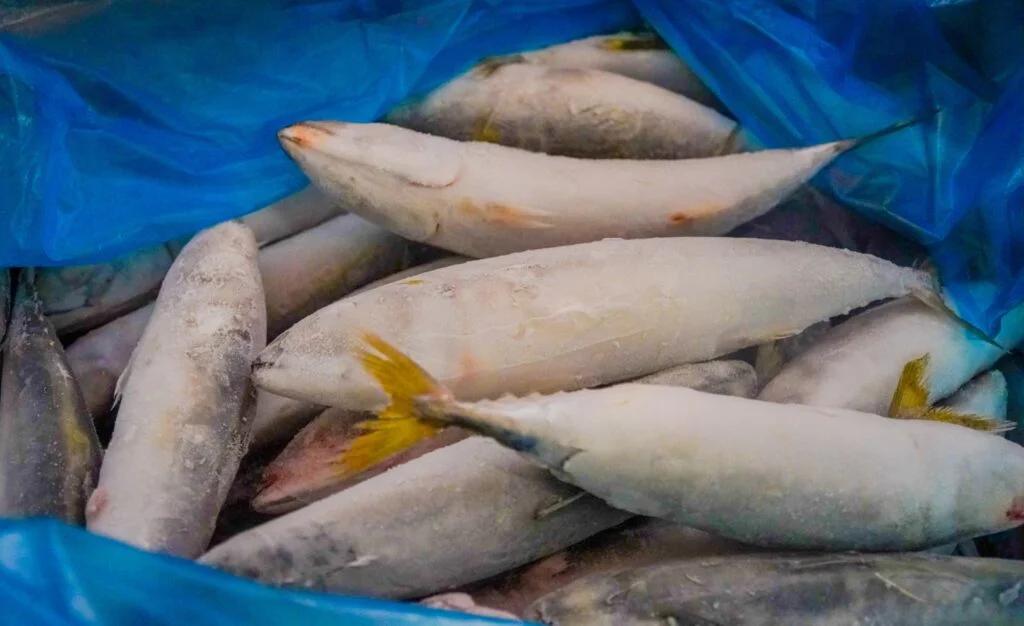Properly frozen and stored confiscated fishery and meat products imported from abroad must be declared as such and put in reserve stockpile for use in emergencies.
This was the advice of the Meat Importers and Traders Association (MITA), even as the Department of Agriculture (DA) is asking the Bureau of Customs to release such confiscated items to be given to victims of recent typhoons and other calamities.
But the DA can also gradually release the same to its Kadiwa ng Pangulo networks so that low wage earners and those with little income can afford to have them this Yuletide season. Both ways, the stocks won't be kept for long and would not deteriorate in quality.
“Since meat and seafood that are properly frozen and stored do not pose any health concerns, such products can constitute a reserve stock of protein to be tapped and utilized in emergency situations,” MITA President Emeritus Jesus C. Cham said in a joint statement with the Fisheries and Aquaculture Board that was reported by Business World.
The DA had urged the Bureau of Customs (BoC) to release 580 metric tons of seized frozen mackerel for use in relief operations for typhoon victims.
Agriculture Secretary Francisco Tiu Laurel, Jr. ordered the Bureau of Fisheries and Aquatic Resources to conduct tests on the seized frozen fish.
The DA has also allowed importers of fishery and meat products to bring in a controlled volume of these items for direct sale to consumers and some for the needs of hotels, resorts and restaurants.
Last November 26, the DA posted in its website that it had approved the additional importation of 8,280 metric tons of frozen small pelagic fish to address the impact on domestic supply of recent typhoons.
Laurel said the certificate of necessity to import 30,000 metric tons of frozen small pelagic species such as round scad and mackerel needed to be adjusted “to address the effects of Typhoons Kristine, Leon, Marce, Nika, Ofel and Pepito on the fish supply for the fourth quarter of 2024.”
The decision to allow additional imports was decided on after a meeting of the National Fisheries and Aquatic Resources Management Council.
The initial fish import volume is intended to supplement supply in wet markets during the closed-fishing season in major fish spawning areas in the country. The closed-fishing season starts in November and extends through mid-March.
The sanitary and phytosanitary import clearance for the additional fish import volume will be issued until December 16, and fish imported during these SPSICs must arrive in the country January 30 next year.
Secretary Tiu Laurel said the allocation of 8,000 metric tons will not affect the previously allocated Maximum Importable Volume while the 280 metric tons shall be allocated for the KADIWA ng Pangulo centers.
The frozen fish intended for the KADIWA ng Pangulo centers were meant to provide those who belong to the vulnerable sectors such as indigents, persons with disabilities and senior citizens with an affordable source of protein.
Food sold in KADIWA centers is typically priced 20 percent lower than in public markets, helping ensure that essential goods remain accessible to those in need.
“The seized mackerel underwent laboratory testing and was found to be fit for human consumption. We urge the competent authority to declare and certify the same as wholesome,” Cham added.
He said that the DA should attempt to put to use all frozen meat and seafood seized by the BoC or abandoned by importers.
He added that both agencies should enter into a memorandum of understanding to formalize procedures.
“They should likewise be declared wholesome if tested and found to be fit for human consumption,” he said.
Cham added that such a move could boost the government’s food security efforts and decrease food waste.
He said that products should be tested and taken out of port within two months of seizure or abandonment.
“In this manner, port congestion can be avoided, and costs of electricity, storage and demurrage can be lessened,” he added.
Republic Act No. 12022 or the Anti-Agricultural Economic Sabotage Act, seeks to deter the smuggling or hoarding of farm products.
The law classifies agricultural smuggling, hoarding, profiteering, and engaging in a cartel as economic sabotage.
Photo Courtesy: NewsLine Philippines
#WeTakeAStand #OpinYon #OpinYonNews #DA #BoC
